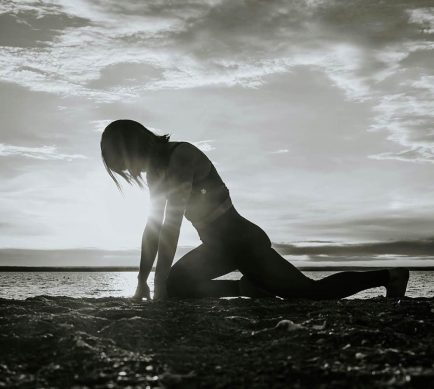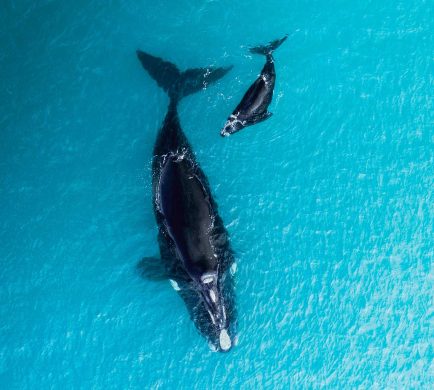Premiering on August 18
An interview with Aldo Kane
Ex-Royal Marine, Special Ops
In an exciting new series, National Geographic invites viewers to embark on a voyage of discovery with OceanXplorers, executive produced and narrated by James Cameron. Premiering on August 18, this groundbreaking series takes the audience aboard a state-of-the-art scientific research vessel, offering an unprecedented look into the depths of our oceans. Through cutting-edge technology and expert exploration, OceanXplorers promises to uncover the mysteries of the marine world, shedding light on its hidden ecosystems and the fascinating creatures that inhabit them. Join the adventure and witness the awe-inspiring journey of scientific discovery as National Geographic brings the wonders of the ocean to your screen.
“My true passion lies in deep ocean science and in exploration,” says Cameron. “In OceanXplorers, we take viewers on an unparalleled ocean science adventure, introducing them to a group of conscientious, passionate people on a sometimes dangerous mission of ocean discovery in real-time. We present the stakes and firsts and tell a visually spectacular and dramatic story. This story inspires the next generation of explorers and adventurers committed to protecting and preserving our oceans.”
OceanXplorer, which was purpose-built by the global science, media, and exploration nonprofit OceanX, is a technological marvel with the power to explore the depths of the world’s oceans. The ship has two submersibles — Neptune and Nadir — which can dive to 1,000 meters, or 3,280 feet, for up to 72 hours. A helicopter is aboard alongside multiple marine science laboratories and a media studio that captures new science and real-time discoveries for the screen. The OceanXplorer is a full-scale research vessel that can span the Earth’s oceans and shed light on even the most inaccessible depths of the sea.

Aldo Kane, who spoke with The Eden Magazine in an exclusive interview, is featured throughout the series. He is an Ex-Royal Marine and Special Ops, who trained as Royal Marine Commando, where he became one of the youngest elite Commando snipers ever, and an expert in survival and operations in all environments.
Could you share some of your experiences as a Royal Marine and in special operations that have shaped your understanding of the ocean?
I joined the Royal Marines at the age of 16 and passed for duty as a Royal Marines Commando at the age of 17. This is the longest, hardest infantry training in the world and part of the UK’s Elite fighting forces. I served as a Reconnaissance troop Sniper. The British Commandos are sea soldiers, and I spent a year at sea on HMS Fearless as Embarked Elite forces. I became an expert at operating in and on the ocean. I spent ten years serving operationally, and it was this time that shaped my knowledge and understanding of operating in high-risk, high-consequence maritime operations.
What drew you to join the series OceanXplorers?
I have been leading Expeditions all over the world for the last 30 years. From jungles and deserts to the high mountains and the ocean. For the last 5 years, I have been almost exclusively involved in Scientific missions, collecting lava samples from erupting volcanoes and documenting melting glaciers and endangered species as they near extinction. I was asked to join the OceanXplorer as Expedition Lead to help a team of scientists better understand the Atlantic Ocean. Outside of the adventure aspect of the Expeditions, I was drawn to the fact that what we were going to be filming was potentially a series with a huge reach, a series that would create an impact with a younger generation. My main reason for joining was to inspire and encourage the next generation of explorers, adventurers, and scientists to better understand and be drawn to the Ocean.
How do you think your military background influences your approach to exploration and discovery in the ocean?
My elite military background allowed me to lead with confidence on a dynamic and fast-paced mission. The Ocean can be an incredibly high-risk environment with big consequences for mistakes; this is where I thrive and enjoy helping others to do so. Living and working on a ship like the Ocean Xplorer requires a high level of people management and logistical skills with many intricate moving parts. On any one day, I could have submersibles down, Helicopters up, dive boat operations, and whale tagging going on at the same time. This requires a cool head, good decision-making under pressure, and courage. This is how I approach Ocean exploration and everything in my life.
In what ways do you hope this series will inspire viewers to engage more with the ocean and its preservation?
To conserve something, you have to be able to not just see the problem; you have to understand the problem and its gravity. That is exactly what the issue is with the ocean. It is very difficult to see just how bad the situation is without getting into it, under it, and on top of it. Our mission allowed us to use the most cutting-edge scientific, filming, and exploration equipment to bring the most remote parts of the ocean right into people’s living rooms. I hope that it inspires the next generation of scientists, explorers, and communicators to pick up the gauntlet and help inspire more people. The ocean needs as much help as it can get, and the more people working to protect it, the better.
What are some of the most memorable moments you’ve had while filming for OceanXplorers?
We did three-month missions on the OceanXplorer between the Caribbean, the Dominican Republic, the Azores, and all the way up to the far North, Svalbard. I have a few stand-out memories from those expeditions. The best, for several reasons, was freediving with Humpback whales off the coast of the Dominican Republic. I had spent the morning diving with about 6 whales and then came back on board to watch my first son being born on a WhatsApp call from the science lab. WOW! I also loved going down in the Submersibles, I managed to get down to 3000 feet and the sea bed. Working with the Norwegian Polar Institute was also an excellent experience collaring Polar Bears.

How do you balance the thrill of exploration with the need to ensure safety, both for yourself and your team?
My job, primarily on any mission as Expedition Lead, requires me to be all about safety first and foremost. Exploration can be risky business, but it’s my job to reduce that to as safe a level as possible. This doesn’t mean that we don’t get to enjoy it, quite the opposite. When someone is across the safety, it means that everyone else can concentrate fully on their scientific or filming mission.
How do you see the role of technology evolving in underwater exploration, and how has it impacted your work on OceanXplorers?
Technology is the fundamental game changer in Ocean exploration. As human beings, we have been navigating the surface of the ocean for hundreds of years, but anything below has largely remained a mystery until very recently. We can now dive to the bottom of the deepest parts; we can map and survey the ocean floor like never before, sample and record the water column with incredible accuracy, and we can follow animals, detailing every move they make. Technology and the OceanXplorer have opened up a brand new era of Ocean exploration where nothing is too deep, too far, or unknown. This is truly one of the most exciting times to be alive and involved in Oceanography and Marine sciences.
OCEANXPLORERS
is co-produced by BBC Studios Natural History Unit and OceanX for National Geographic. For Lightstorm Earth, James Cameron and Maria Wilhelm are executive producers. Roger Webb and Orla Doherty are executive producers for BBC Studios. Ray Dalio, Mark Dalio, Vincent Pieribone, and Joe Ruffolo are executive producers for OceanX. For National Geographic, Kevin Tao Mohs is the executive producer, and Tom McDonald is the executive vice president of Global Factual and Unscripted Content. The series was created in partnership with the National Geographic Society with a mission to use the power of science, exploration, education, and storytelling to illuminate and protect the wonder of our world.
is on a mission to support scientists to explore the ocean and to bring it back to the world through captivating media. Uniting leading media, science, and philanthropy partners, OceanX utilizes next-gen technology, fearless science, compelling storytelling, and immersive experiences to educate, inspire, and connect the world with the ocean and build a global community deeply engaged with understanding, enjoying, and protecting our oceans. OceanX is an operating program of Dalio Philanthropies, which furthers the diverse philanthropic interests of Dalio family members. For more information, visit www.oceanx.org







